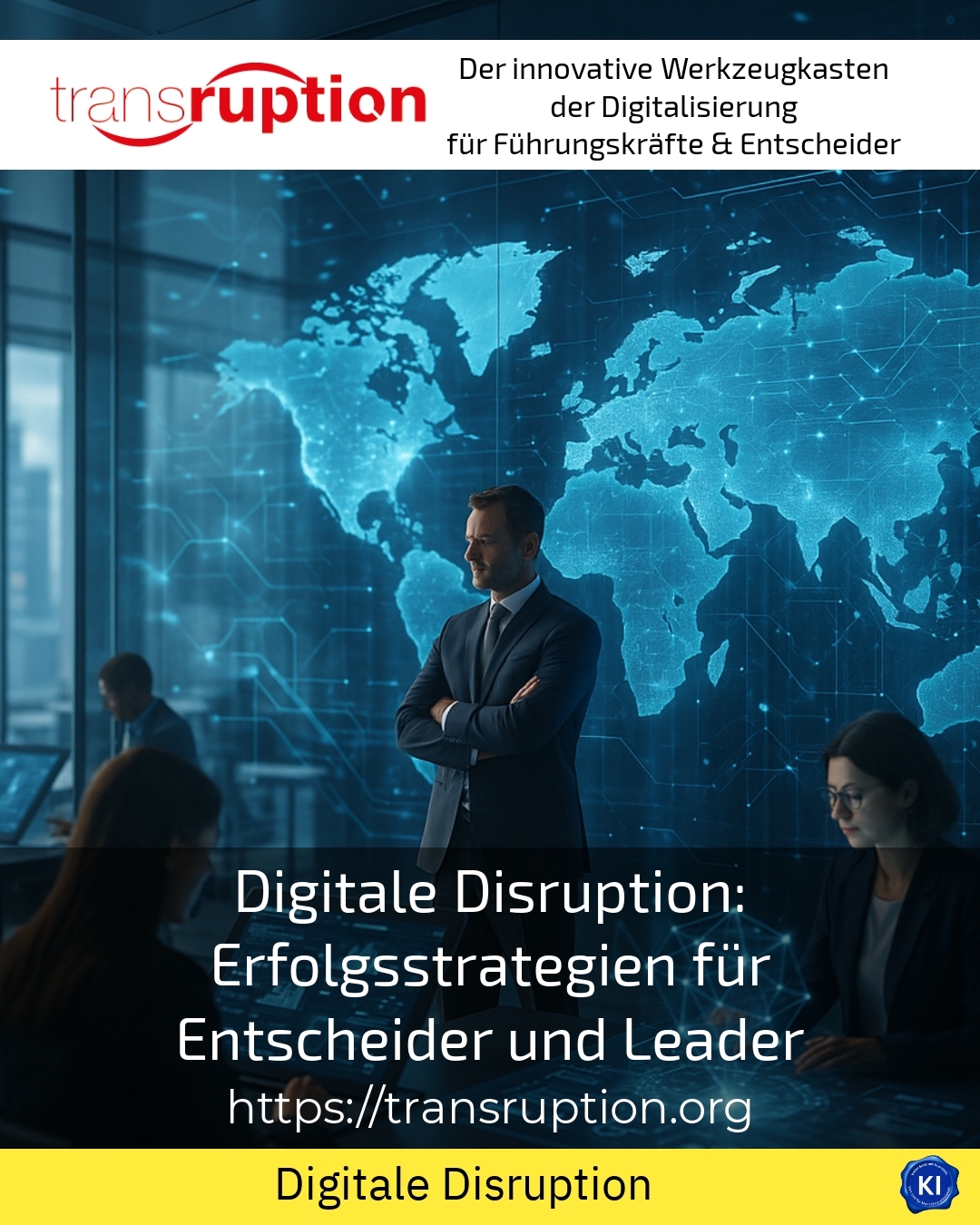In a world that is constantly characterised by technological innovations, digital disruption strategies play a decisive role. These phenomena occur when digital innovations replace existing services, products or business models with new, often more efficient solutions. As digital technologies are capable of fundamentally changing markets, company leaders and decision-makers are required to react appropriately to these developments in order to avoid being displaced[1][2].
Strategies in the changing face of digital disruption
Digital disruption offers companies the opportunity to innovate their business models and adapt to new market conditions. A successful strategy is to react early to disruptive trends and take proactive steps to transform your business. For example, Tesla has strongly influenced the traditional automotive business by setting new standards for sustainability through the introduction of electric cars and autopilot functions[8].
Utilising offensive innovations
A crucial step for companies is to close digital gaps through innovation and to serve new customer demands. Spotify, for example, has changed the music industry significantly with its subscription model and drastically reduced sales of physical sound carriers[8]. Decision-makers should promote innovative forces by introducing agile processes and targeted pilot projects.
Another example is the sharing economy, which has disrupted traditional industries such as the taxi and hotel sectors through platforms such as Uber and Airbnb. These companies have shown that it is possible to open up new markets and revolutionise existing ones by creating new forms of interaction and benefit generation[4][7].
Defensive optimisation of existing business areas
Another strategy is the defensive optimisation of existing business areas. This can be done by modernising old business models in order to extend their lifespan and create financial scope for new innovations. Netflix, for example, has modernised its DVD rental business through digital automation, although the focus has shifted to streaming[8].
Companies should also decide at an early stage whether existing business segments should be restructured or discontinued in order to fully utilise their proven strengths.
Developing digital platforms and ecosystems
Many successful digital business models are based on platforms that bring together external providers and customers. Amazon has developed from an online bookseller into one of the largest trading centres on which millions of third-party sellers offer their products. Uber, on the other hand, uses private resources via its app to offer driving services without owning vehicles itself[8].
Such platforms enable companies to respond flexibly to new needs and distribute value efficiently. Decision-makers should build a digital infrastructure that facilitates new partnerships and collaborations.
BEST PRACTICE at the customer (name hidden due to NDA contract) In a pilot project, one company has developed a platform solution to bundle local service providers who offer goods regionally without having their own stocks. This enabled the product range to be significantly expanded and delivery times to be shortened. This change supported the transformation from a traditional retail company to a modern omni-channel player.
My analysis
To summarise, digital disruption is a key driver of change in the business world. It offers enormous opportunities, but also challenges. Companies that are able to recognise and respond to these developments at an early stage can strengthen their market position and hold their own in the long term. Strategies that focus on offensive innovation, defensive optimisation and the development of digital platforms are crucial for success in a disruptive environment.
Further links from the text above:
Learn more about Digital disruption and how it is changing markets. You can also visit the pages of Maximum Digital for more information on megatrends in digital change.
For more information and if you have any questions, please contact Contact us or read more blog posts on the topic TRANSRUPTION here.
















